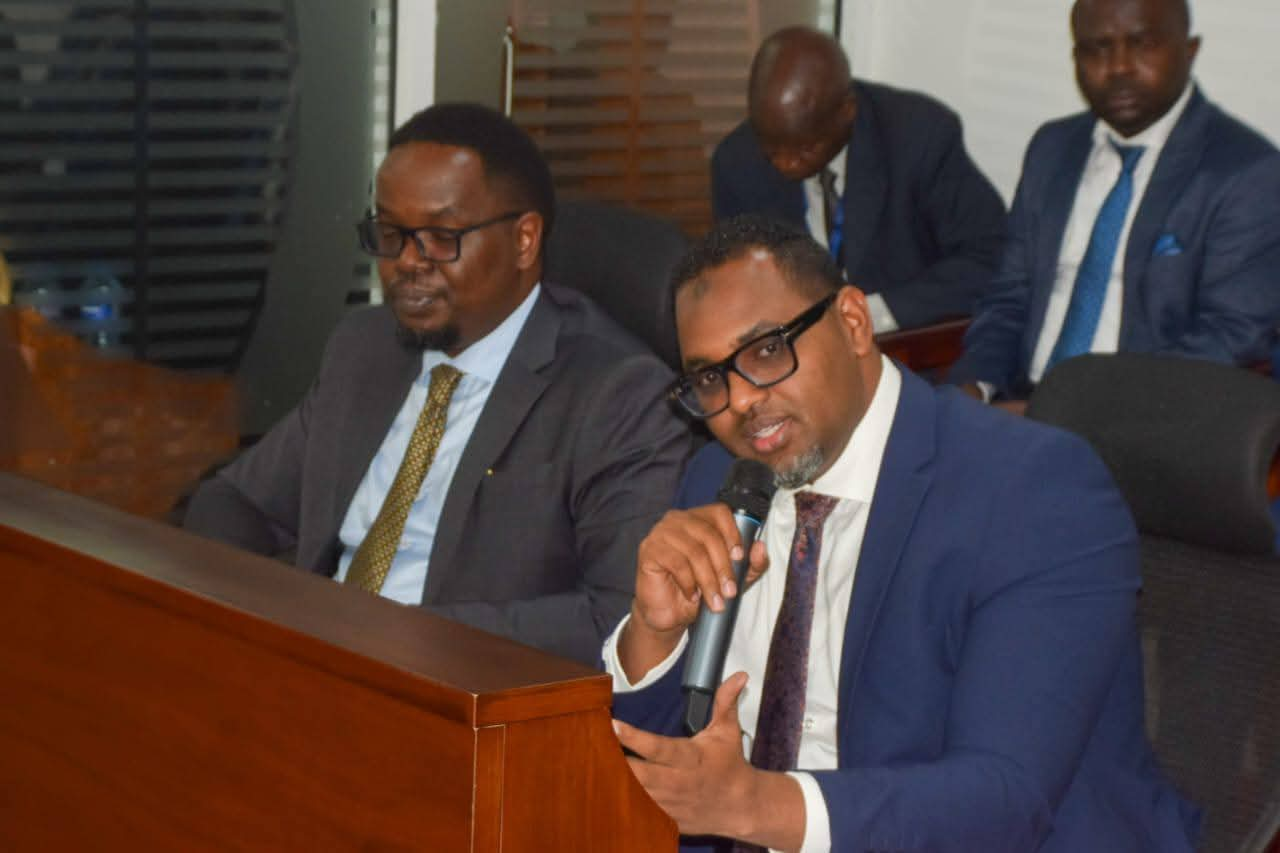 EAPC Managing Director Mohamed Adan ( With Microphone ) appearing before the National Assembly’s Committee on Trade, Industry and Cooperatives on September 16, 2025. Photo by PBU
EAPC Managing Director Mohamed Adan ( With Microphone ) appearing before the National Assembly’s Committee on Trade, Industry and Cooperatives on September 16, 2025. Photo by PBU
By Andrew Mbuva
The National Assembly’s Committee on Trade, Industry and Cooperatives has raised alarm over a planned sale of nearly a third of East Africa Portland Cement (EAPC) shares to Kalahari Cement Limited, questioning the secrecy surrounding the transaction.
Led by Chairperson Benard Shinali (Ikolomani) and Vice Chairperson Marianne Kitany (Aldai), the legislators said the process had excluded key stakeholders, including the company’s management and employees.
Appearing before the committee, EAPC Managing Director Mohamed Adan revealed that the deal involves 29.2% of shares held by Cementia Holdings AG and Associated International Cement Ltd—subsidiaries of the Holcim Group, which has close ties to Bamburi Cement. If completed, the transaction would hand Kalahari Cement a combined 41.7% stake in EAPC through its association with Bamburi.
The MPs questioned why such a significant transaction was moving ahead without public participation, despite the government owning a controlling 52.3% stake in the company through the National Treasury (25.3%) and the National Social Security Fund (27%).
“This is not just any private company. Kenyans, through their pensions and taxes, are the majority owners. Due diligence and consultations with employees and local communities are a must,” said Kitany.
Adan confirmed that staff had not been engaged, noting that the uncertainty had sparked fears of job losses. He added that while a share buyback could be possible under the firm’s improved cash flow, no proposal had been tabled.
Committee members also faulted governance practices at the company. Kitany questioned why the appointment of the board chair appeared to rely on government nomination rather than corporate procedures. Adan admitted that the Articles of Association—last updated in 1933—were outdated and pledged to align them with current laws.
The MPs further demanded clarity on Kalahari’s long-term strategy, citing its links to competitor Bamburi Cement. Adan insisted management had received no formal communication, dismissing much of the chatter as market speculation.
Lawmakers vowed to intensify scrutiny, warning that the deal affects taxpayers, employees, and communities in quarrying areas. “Where there is no transparency, Parliament must step in,” the committee cautioned.